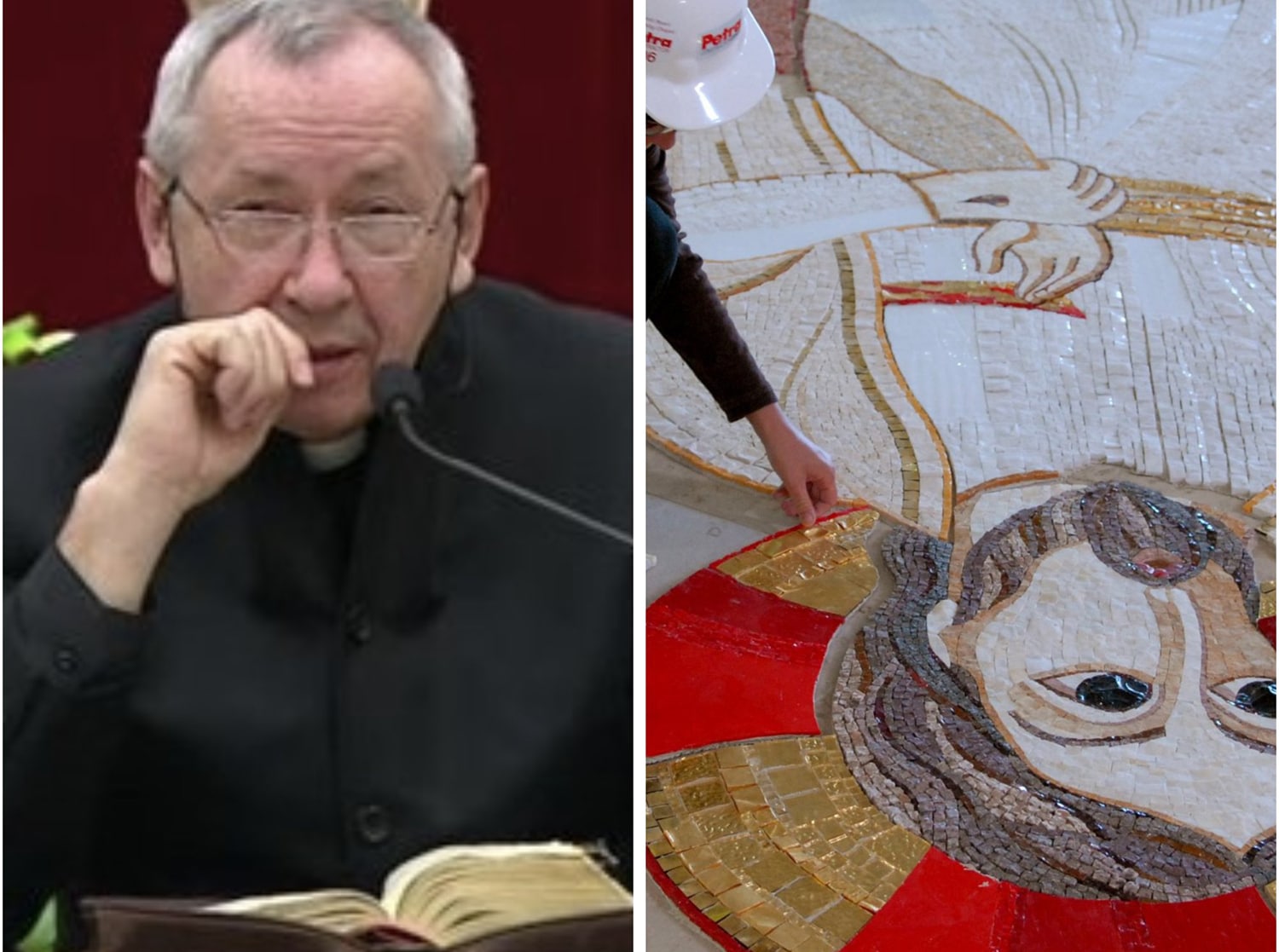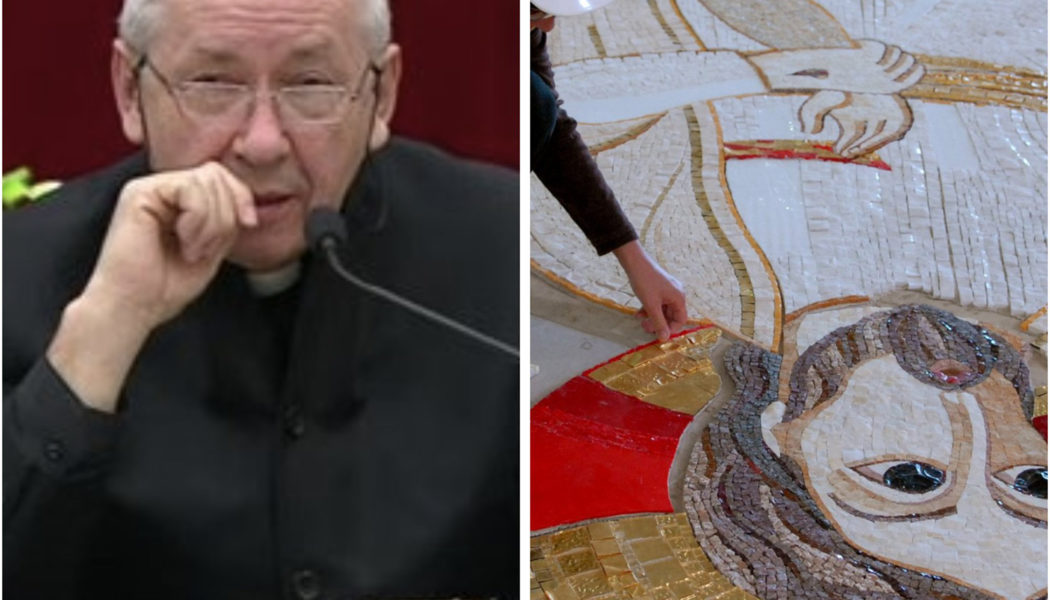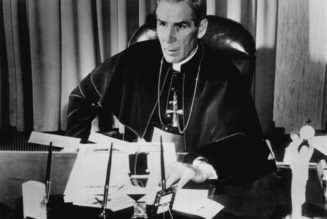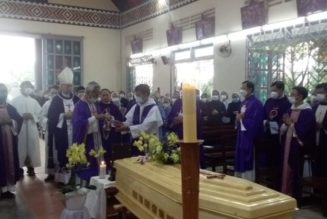
(OSV News) The Society of Jesus has dismissed Father Marko Rupnik from the order. According to Father Johan Verschueren, his superior in Rome, Father Rupnik was turned out by the decree of Jesuit Superior General Father Arturo Sosa June 9; he has 30 days to appeal that decision. This was done, as Father Verschueren put it in a report from Catholic News Service Rome, “in accordance with canon law, due to his stubborn refusal to observe the vow of obedience.”
Well good. But I have questions.
The most urgent concerns Father Rupnik’s status as a priest. He remains one, of course. Dismissal from a religious order does not laicize a priest. Canonically, though, he is not able to function as a priest unless his faculties and ministerial duties are first approved by a bishop receiving him into a diocese and acting as his superior.
It is to be hoped, but is by no means a sure bet, that Father Rupnik — credibly accused of spiritual, psychological or sexual abuse of two dozen women and at least one man — will not be enabled to work as a priest by any responsible bishop. The headstrong Slovenian priest has demonstrated that he dislikes being told what to do or being accountable to anyone.
So, what if he decides to just go rogue — “a priest forever in the manner of Melchizedek” (Ps 110:4) — swanning about Europe (maybe he’ll start a blog!) until he is formally laicized? It feels a little like the Jesuits have set loose a potential monster-at-large. His artistic renown has brought Marko Rupnik great privileges within the order and the church, and privilege translates to “private law,” which is something hard to surrender. But he is a predator; a predator needs (and finds) new prey. Cut loose from the Jesuits but still factually able to call himself a priest, who knows whether he will find some gullible minds, hearts and bodies to wear down and exploit?
The Jesuits’ dismissal of their “star” cleric prompts another question: “Really? You admit that he’s credibly accused of acting like a psycho-sexual Rasputin but dismissal comes only when you’re fed up with his ‘stubborn refusal’ to be obedient? That is what finally offends enough to send him out?”
Sometimes I wonder whether those in Catholic leadership fully understand how their actions and inactions impact the spiritual lives of the people of God. So, if I may presume to explain:
Gentlemen, the pews are emptying because of precisely these sorts of stories — the exploitative psycho-sexual antics of predatory priests and religious (male and female). Actually, they’re not only leaving because of the Marko Rupniks but because of those leaders who take action with sloth-like speed once predators are exposed. Due process is necessary of course, but let’s be honest: Had Rupnik (who recently concelebrated a “private” Mass held in a very public venue) taken a penitential posture and disappeared from public view, the chances are he’d never have been dismissed from the Society. No headlines, no problems.
Disobedience, however, not predation or privilege, was a problem up with which the order would not put?
We don’t know how much or how little attention our Holy Father paid to the matter of Marko Rupnik. It wouldn’t surprise me to learn that Pope Francis recommended his dismissal, but — since he heads the church of Christ but not the Society of Jesus — didn’t quite have the influence.
A final question: Why were the skilled, professional people working in Catholic media forced to work so hard to confirm this story? Why were two separate journalists I spoke with — both award-winning reporters — told, “The journalists of AP and La Repubblica were the only ones we talked to …”
Catholic journalists can validly wonder why the Jesuits brought this announcement to the secular press without inviting the church’s own media professionals. Why not include the Catholic journalists who deeply understand their readers and anticipate their questions? Why not bring this story to writers who know their readers would want to read about Rupnik’s priestly status in the second, not the seventh paragraph, and would wonder how canon law will address the story’s complexities?
Our leadership’s instinct to give precedence to secular news organizations before talking to their own Catholic press is a symptom of a real problem with the church, which is its own sense of itself in the world. We are a church operating like a secular entity, not a supernatural one, playing to (and resourcing) secular institutions, secular media, secular remedies before looking to our own skilled communicants and rich psycho-spiritual inheritance. It is an entirely worldly, corporate and downright simple mindset — one oddly paired to a complex and supernatural institution.
As we have seen since the Second Vatican Council, permitting the secular press to be the primary disseminator of church information results in the people of God subsisting on pithy soundbite pronouncements — “Catholics can now eat meat on Friday!”– with no follow up toward the clarifying footnotes instructing that the faithful must still make a sacrifice of some sort after choosing the burger on Friday.
Am I fed up? Sometimes, yes. I am a lay Catholic who loves this taproot of Christianity and understands its value to the world, even as we navigate its many challenges.
But all of this has occurred in the month of June. And June is when Catholics especially honor and reverence the Sacred Heart of Jesus.
So, I know precisely what to do with all of this — where to put Father Rupnik, and whole church, the Jesuits and the sorely underappreciated Catholic media, and my own frustration: I’m going to shove all of it, by the handfuls, as deeply as I can into that ever-pulsing, self-immolating but never consumed “Abode of Justice.”
Precisely where we all belong.
It is good to pray the Litany of the Sacred Heart in times of chaos, questions and keen disappointment. Justice and rightness will come of it, this I know.









